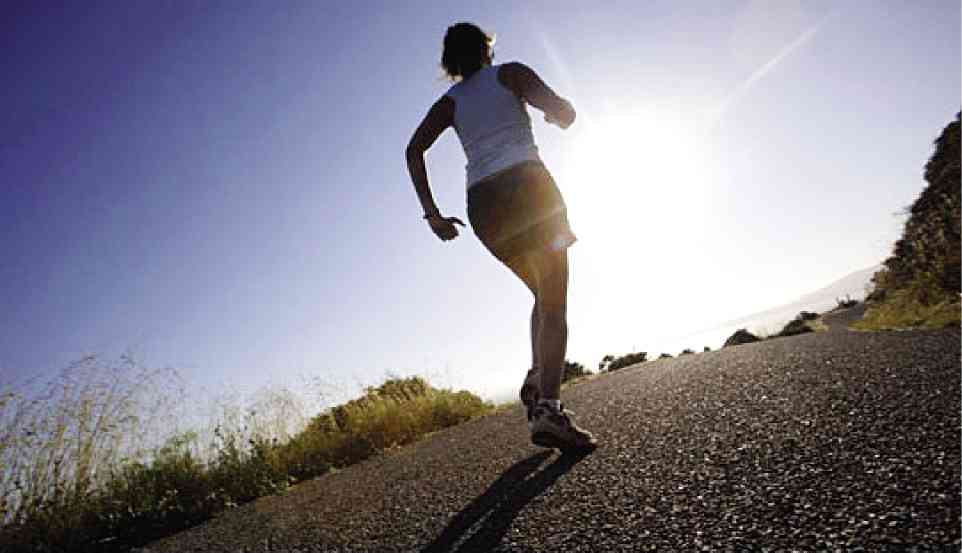
AVOID exercising under the sun. However, if one needs to train or participate in sports (marathon, cycling), drink fluid regularly to help maintain electrolyte levels and refuel your muscles.
When the weather is scorchingly hot, one sweats to cool down. But this also means that that person loses more fluid than usual and cause the blood pressure to drop and make the heart beat faster.
This is not an issue for most people as long as they drink plenty of fluids, like water or other drinks that keep them from being dehydrated.
“However, if you have a heart problem, extreme heat may place an extra burden on the heart and circulation,” warned Dr. Adolfo Bellosillo, president and founder of the Foundation for Lay Education on Heart Diseases (FLEHD).
Prevent angina
Bellosillo, who also heads the Makati Medical Center’s Cardiovascular Rehabilitation and Preventive Cardiology Unit, said those with heart problem may experience angina during hot weather as the condition increases the heart’s workload and demand for oxygen, especially if one gets a little active.
He said: “Of course, there’s the heat stroke, wherein one loses too much body fluid and causes the internal body temperature to increase. This could be life-threatening if left untreated so watch out for symptoms like sweating, fever, cold clammy skin, dizziness, fainting, muscle cramps, heat rash, shallow or fast breathing, nausea and vomiting.”
The doctor warned those with heart problem not to wait for heart failure to happen as extreme heat makes one’s heart work harder. This can trigger atrial fibrillation (irregular and often rapid heart rate) or increase one’s risk of stroke and heart failure.
So what can we do to keep cool?
Get hydrated
“The best thing to do is to be hydrated by drinking plenty of water or other sugar-free drinks except of course if you have been advised by a doctor to restrict fluid intake for medical reasons,” said Bellosillo whose advice to the public follows:
- Avoid drinking too many alcoholic or caffeinated drinks as these types of drinks can cause one to lose more fluid from the body.
- Eat cold foods, particularly salads as well as fruits and vegetables with high water content (watermelon, cantaloupe, cucumber, tomatoes or strawberries).
- Wear light, loose-fitting cotton, rayon or linen clothes (some modern fabrics are moisture-wicking and could keep one from body heat buildup). Moreover, light-colored fabrics are better as they reflect light and heat.
- Make sure the home is cool when staying indoors.
- Stay out of the heat during the hottest time of the day. However, if you really need to go out in the heat, walk in the shade, apply sun protection lotion or wear a head gear.
- Avoid extreme physical exertion because overbearing heat and humidity are far from ideal conditions. But they’re not impossible obstacles to overcome if you take the proper precautions, especially if you need to train or participate in sports (marathon, cycling). Consume around one glass of sports drink (drinks that contain dissolved minerals and carbohydrates) every 20 minutes to help maintain electrolyte levels and refuel your muscles.
“Elderly individuals and very young children have more difficulty in regulating their temperature and so they can be more at risk from extreme temperatures,” Bellosillo said. “In hot weather, check on your friends and relatives regularly to make sure they are cool and comfortable,” he advised.

